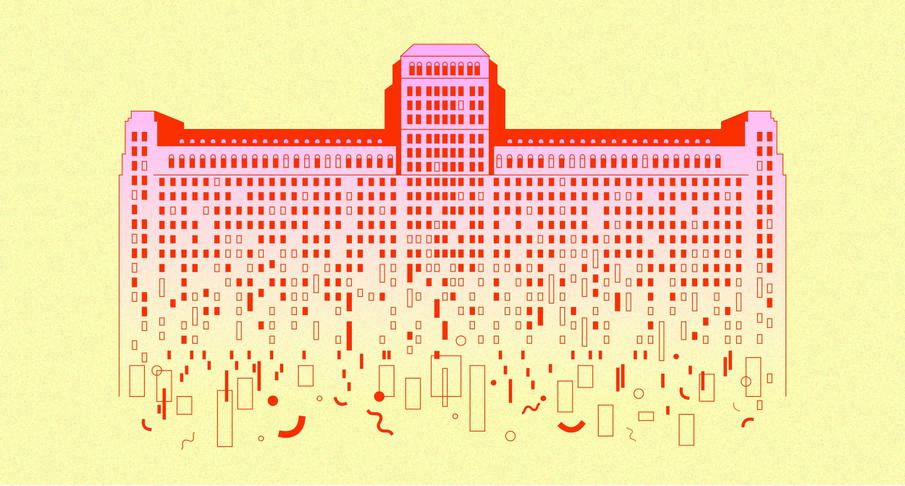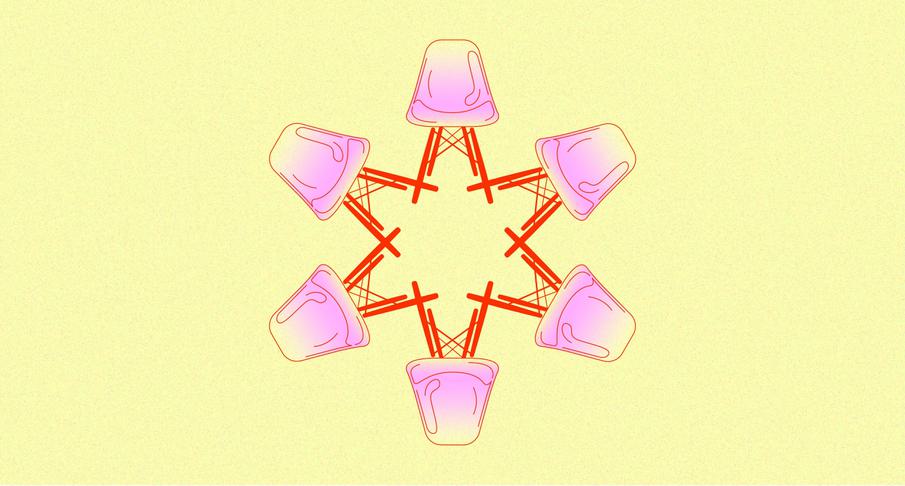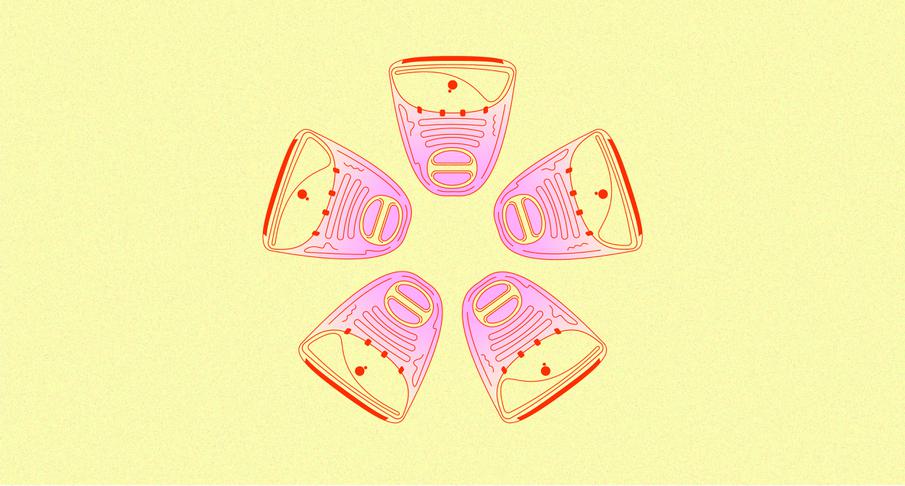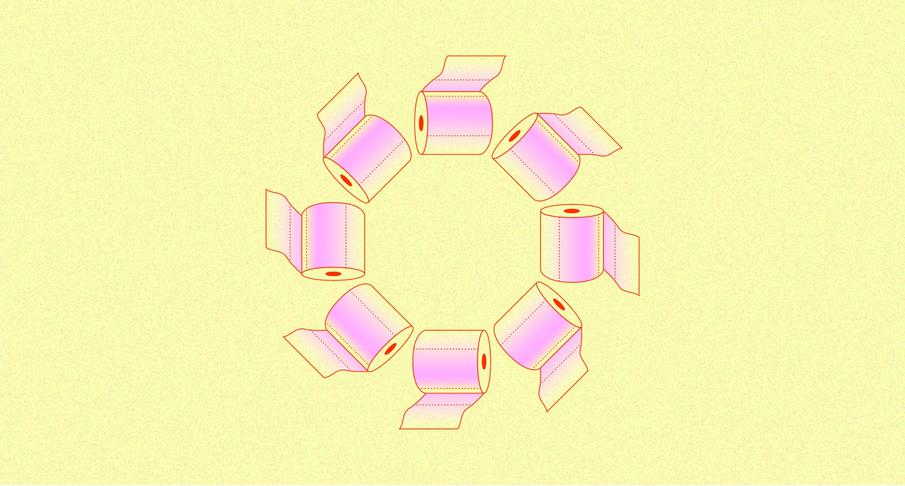
Peopledesign
The Built Environment
Furniture
Lighting
Textiles/Upholstery
Flooring/Carpet
Building Materials
AE Firms
No NeoCon. Now What?
No NeoCon. Now What?
A new normal will soon emerge for many industries, including commercial furnishings.
For the first time in over 50 years, the NeoCon 2020 show will not go on. Everyone understands that having thousands of people descend upon Chicago's Merchandise Mart in June during the global pandemic is unthinkable, but what's next is less clear.

Many built environments industry insiders have a love-hate relationship with NeoCon. It's a helpful way to get face time with customers, but all the competitors are there. It's nice to debut new products, but designing and maintaining a showroom in the Mart is costly. With an unclear return on investment, NeoCon is a game we're not sure we want to play.
In any case, we're all hitting the pause button this year. Taking a break would be a relief if it weren't for the more significant economic crisis. Much of the economy has already ground to a halt, and building office workspaces will not be a top priority for anyone. Commercial furnishings companies have already felt the pinch. For many, this is a time to brace ourselves to face strong headwinds, conserve, and protect. The economy will recover, but the next few years will be hard.

Disruption creates opportunities for innovation. Herman Miller is a leader today partly because of the risks it took in the 1930s following the Great Depression. A hundred years ago, the company was undifferentiated and not financially stable. Taking a gamble on unproven, freewheeling modern designers from New York City was not a clear next step for a conservative little company from the Midwest. Modern furniture was untested, but Herman Miller needed a new idea. Similarly, it's hard to imagine that Apple, one of the most valuable companies in the world, was on the verge of bankruptcy in 1997. Apple reduced its product offering by 70 percent to stay alive and introduced rounded, translucent candy-colored plastic computers without disk drives. Making computers fun was not an obvious choice in a time when they were seen as items of utility.
Going big in a new direction sounds risky, but necessity is the mother of invention. Business guru Peter Drucker said, “All profit is derived from risk.” When they doubled down on a new idea, Herman Miller and Apple were in dire straits. These bets paid off. More significantly, the success of the initial bet led to a more innovative spirit in the company. Apple‘s iMac led to the iPhone and iPad. Herman Miller‘s initial experiments in modern furniture led to office systems furniture, ergonomics, and beyond. The rest is history.

Amazon is the largest retailer in the world, a leading provider of web services, a space exploration innovator, and much more. Despite having started with a relatively modest first idea, selling books online, Amazon is the most valuable company in the world. Founder Jeff Bezos has said that while they do many things, the thread that connects these businesses is a willingness to try something new. He built Amazon not to copy others. Bezos likes to catalog the number of times they've tried and failed to be a fast follower. Amazon invests in experiments and often fails. Amazon’s wins take time, and it frequently reinvents a category. From his first letter to shareholders, Bezos emphasized the value of seeing every day as Day One. Day Two, he wrote, “is stasis. Followed by irrelevance. Followed by an excruciating, painful decline. Followed by death. And that is why it is always Day One.”
COVID-19 has made it Day One for many organizations. It's an emergency for sales, operations, and supply chains. In this crisis, worrying about a tradeshow like NeoCon is hard. As we imagine what comes after, recognize that a return to normal may never come. A new normal will emerge for many industries, including commercial furnishings.

Work culture may shift even more significantly after months of working from home. The virtual event landscape will experience a boom in the next year as the global conference marketplace reinvents itself to stay alive. People will still work in offices and attend events like NeoCon. Nevertheless, we're at a tipping point: the need to save money, maturing communication technologies, and generational expectations will continue to reshape the work landscape.
NeoCon was already ripe for reinvention. Furniture companies parading out of the Merchandise Mart to spaces nearby started a few years ago. Larger organizations moving out may allow smaller ones to get permanent showrooms. Even more significant moves by anchors Knoll and Herman Miller to a different neighborhood promise to reshape the event entirely. Will there be two parallel Chicago shows?
Just as Amazon taught us that we don't need bookstores to buy books, we will learn what role showrooms and trade shows play in purchasing furniture. Sure, we need to see things in person and touch them, but today, you can buy cars online.
In-person trade shows like NeoCon have always had many layers. It's an opportunity to visit with customers and an excuse for a sales meeting. Put your best people in front of your best customers in the best environment. To establish a new brand message. To take key people out to dinner. To celebrate. To ante up with competitors in the marketplace. To have a sense of identity and meaning in the market. But NeoCon isn't always good at all those things. One bad experience on a crowded elevator leaves people wanting more.
There are many other ways to address these issues, and innovators will find them. Many companies are already considering leveraging the current reality of people working from home. People are available and online. It's an excellent time to rethink your offering, brand message, and customer experience.

Drucker helps us understand risk and reward. He also said that the purpose of business is to “create a customer.” Not serve them, or market to them – create them. Apple, Herman Miller, and Amazon helped create new kinds of customers. The B2B commercial furnishings business will continue to follow B2C trends. At this point, digital marketing is just marketing, so take full advantage. Work to connect with your customers meaningfully. What matters to customers now and in the next 5 to 10 years? Rebuild your customer journey by removing some steps and adding new ones. What are today’s customer expectations?
NeoCon is not happening this year, but that’s not even the most urgent thing on your list. Times like these create leaders. Try something new. A spark of success can change a culture and position your organization for the new normal.